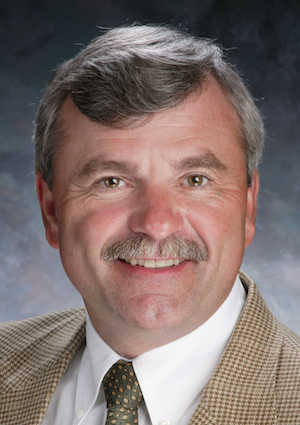Should Waukesha be able to stick a straw into Lake Michigan? Yes.
The 2008 Great Lakes Compact, a landmark agreement among the Great Lakes states, was designed to protect the Great Lakes from outside diversions of water. It also governs its own exceptions to a general prohibition on diversions, including the use of water by communities within Great Lakes states that straddle the watershed.
The compact was the result of more than two decades of negotiation between the Great Lakes states and Canadian provinces, the environmental and conservation communities and businesses. Once adopted by Congress, it gave critical new powers to those of us in the region, to protect against water being diverted to the arid west or being used to transport materials outside the Great Lakes basin. Its adoption by the eight lakes-adjacent states, two provinces and Congress was an historic step that required cooperation, compromise and commitment.
It is a powerful and historic tool that enables the Great Lakes region to determine its own destiny.
In May, the regional body created by the compact recommended approval of an application by Waukesha, Wis., to divert water to the suburban Milwaukee city, and earlier this week, the Compact Council approved it. Waukesha is a “straddling community” as defined in the compact, lying just outside the watershed.
Waukesha’s application came with nearly 10 years of fact-based research, and the application’s approval imposed a number of requirements. Those include a nearly 50 percent reduction in the geographic area to be served by Great Lakes water and a significant reduction in the amount of water that Waukesha is permitted to use -- the two biggest concerns that were voiced on the issue.
The imposition of those conditions will ultimately create a net ecological benefit to the Great Lakes by eliminating an ongoing removal of millions of gallons of water from the lakes through Waukesha’s current groundwater withdrawal. Saying yes to Waukesha means an end to this continuing diversion of Great Lakes water to the Mississippi River watershed and ensures that 100 percent of future water consumed by Waukesha will be returned to Lake Michigan.
In addition, approval also means that both the health of the Great Lakes ecosystem and that of Waukesha citizens will be protected. Approval brings an end to the threat of human and ecosystem exposure to a radioactive, cancer-causing material (radium) by stopping it from being pumped to the surface -- a primary reason Waukesha sought the diversion.
Despite these benefits, some continue to argue that we in Great Lakes should have just said no.
It was Thomas Jefferson who once said, “I hope our wisdom will grow with our power, and teach us that the less we use our power, the greater it will be.”
In the test case of Waukesha, the Compact Council set a strong precedent by creating conditions, checks and balances that will protect the Great Lakes watershed. In addition to limits on water and geography, it also mandated that Waukesha implement a pharmaceuticals recycling program (something that should be required everywhere). It imposed measures to protect wetlands. It requires a monitoring and reporting program that must be adhered to by Waukesha and Wisconsin. Finally, the council added provisions that markedly strengthen enforcement.
The compact was not written to stand as a categorical “no” to any diversion proposal by a straddling community within the watershed. If this application, with its elaborate requirements, conditions and checks cannot be approved, then none could.
Denying Waukesha’s request may have been the easiest or most politically expedient answer, but it would have ultimately weakened the collaborative system that makes the Great Lakes Compact so strong. It would bring into question decades of debate, discussion and ultimate compromise between those who created it. And it would weaken our collective resolve to protect the lakes from the wholesale diversion of water.
Some are now arguing that the council’s decisions may be difficult to enforce, or that Wisconsin lacks the tools -- or worse, the will -- to enforce the conditions. What they miss is that the council (jointly) and each state (individually) have the ability and legal authority to assure that the conditions are enforced. That means that Michigan alone or Michigan with other states can take action to compel compliance. That process, as designed, is open and transparent to the public.
The approval of Waukesha’s request is a clear recognition that sound science, the protection of public health and the protection of the Great Lakes ecosystem can all be accomplished if we as a region are willing to work together. It rejects emotion and political expediency and proves that, working together, this region is capable of using its new power wisely.
In short, it proves that the Great Lakes Compact works and can continue to work to make certain our water stays where it belongs long into the future. Our children deserve nothing less.
See what new members are saying about why they donated to Bridge Michigan:
- “In order for this information to be accurate and unbiased it must be underwritten by its readers, not by special interests.” - Larry S.
- “Not many other media sources report on the topics Bridge does.” - Susan B.
- “Your journalism is outstanding and rare these days.” - Mark S.
If you want to ensure the future of nonpartisan, nonprofit Michigan journalism, please become a member today. You, too, will be asked why you donated and maybe we'll feature your quote next time!


 Bill Rustem is a fisherman, former environmental advisor to Gov. William Milliken and former chief policy advisor to Gov. Rick Snyder.
Bill Rustem is a fisherman, former environmental advisor to Gov. William Milliken and former chief policy advisor to Gov. Rick Snyder.